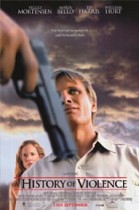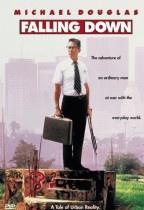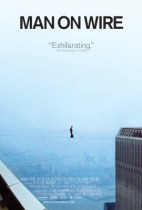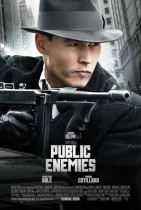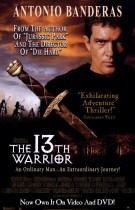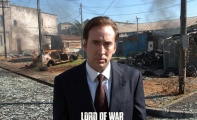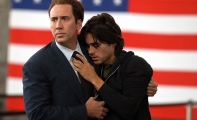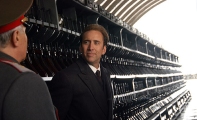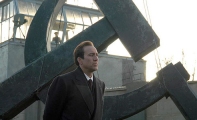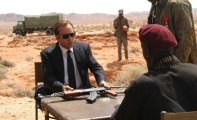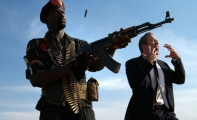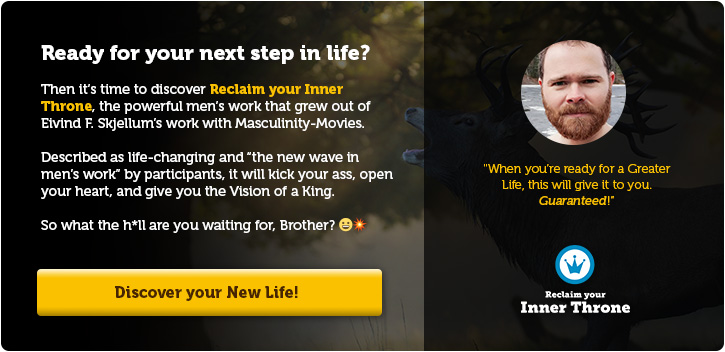Lord of War (2005)
Synopsis
Lord of War is the story of Yuri Orlov, a young man whose life is going nowhere until one day he realizes his destiny is in the arms trade. It is a movie about the consequences a man faces when he specializes in a field of work that is hurting himself, his family and the world. It’s about Yuri’s fear of being a nobody going nowhere, and his willingness to sell his soul to be a somebody living on the edge. Many fascinating observations about the dark side of the masculine await you.
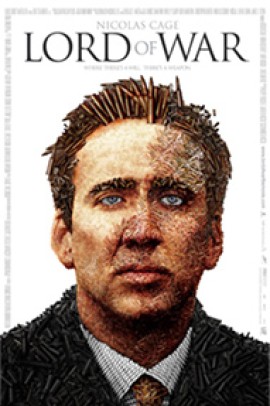
| Genre | Drama |
| Production year | 2005 |
| Director | Andrew Niccol |
| Male actors | Nicholas Cage, Jared Leto, Ian Holm, Ethan Hawke |
My guns don't make the monsters go away
by Eivind Figenschau Skjellum
Lord of War is the tragic story of Yuri Orlov; brother, son, Ukrainian, father, husband – and arms dealer. He grows up enduring meaningless days in the center of Brooklyn, bored numb as the days go by in the Orlov family’s restaurant. His only joy and solace is ogling Ava Fontaine, the gorgeous local poster-girl. In short, his life «is shit».
This review uses concepts from David Deida’s work.
Give me a purpose, any purpose
The promise of greater things arrives when Yuri witnesses a Russian mobster shootout in the fancy restaurant across the road. Suddenly – as if by divine intervention – he realizes his life’s calling: trading arms. After all, his reasoning goes, arms form one of humanity’s basic needs. Who is he to deny people having their needs met?
With new-found purpose, he sets out to create a global arms trading operation. He adopts his brother as his partner and after a rather costly courtship, he marries Ava; things are looking up for Yuri.
Yuri is really living it up now, spending money he never had, and financial ruin is looming. But Gorbachev comes to the rescue and Glasnost-love sweeps the mighty Soviet off its feet. Yuri is a happy man. Dmitrij Volkoff, Yuri’s uncle, is a major general in the Red Army, which is now out of funding, out of leadership and out of direction. Soon enough, AK-47 Kalasjnikovs, tanks and combat helicopters enter Yuri’s sales directory.
It’s not my business
Yuri understands that his actions have consequences, but numbs himself to the pain of living a dishonorable life by wrapping himself in the shell of an infinite stream of rationalizations. «It’s not our business», he repeats as his mantra every time he witnesses the consequences of his actions. «I don’t want people to die. I wish that they miss, as long as they fire those bullets», he tells Interpol agent Jack Valentine – a man of integrity who is hellbent on nailing him. And he’s not even joking.
Yuri is in a cocoon. He is cranking up his bad karma, but is consciously turning away from feeling the consequences, perhaps postponing it for some time in the future, when he «spontaneously becomes a better man». There is a danger that we too sometimes succumb to the same hesitation to get real with ourselves. There is a danger that we settle for a life we don’t like, stripped of integrity, vision and proactive action, because we fear what it will mean to confront our lives with the discernment of truth. I see it often, in myself and others.
And it is here that it is helpful to explore the concept of karma a little further. This perennial wisdom comes to us from the spiritual lineages of the East and is thought of as a universal law, just like gravity, that describes cause (your action) and effect (the result of your action). Men, it seems, have a deep aversion to change. It seems to be hardwired in us. And this points to an intuitive understanding of karma: when we resist changing the deeply imprinted habits of our psyche, it’s because we know that the minute we change course, we will be confronted with all the karma we’ve saved up while denying our deepest calling for so long.
We intuitively know that changing our course is not a small matter impacting just one decision, but that breaking with our pattern to make that one different choice means changing our lives altogether – working our asses off for the rest of our earthly existence to better ourselves, or to crumble up in fear, all out of integrity, living out the rest of our days as mere zombies.
Both alternatives seem to suck ass, so we don’t step up to the challenge, settling instead for the numbness and mediocrity that are the norm for many of our brothers. And then we pretend to be great in our own minds – mediocrity may lead to narcissism, as we often need a way to compensate for our lack. In Lord of War, this is subtly hinted at through the use of religious imagery – golden bullet around the neck, cross-shaped pier etc. Could it be that Yuri considers himself a martyr, taking the crucible of trading arms on himself, so that others won’t have to?
If we DO break away from our pattern, though, we will experience what the Greeks called ecstacis (standing to the side of), the physical sensation of energy-release that comes from breaking with illusion to align ourselves with truth. With ecstacis as our ally, the tables turn in our favour, unknown to the many who never experience it, or who consider it merely delightful flukes. The degree of ecstacis – ecstacy – in our lives signal the degree to which we are truly being ourselves, and as ecstacis is the process of standing to the side of ego to experience our soul, it is our own resonsibility to claim it. No-one will give it to us.
Seeking safety in what we master
Yuri is powerful and successful in his own right, but underneath the varnish of success, he is a little, vulnerable boy seeking approval. This is evident in the conversation with Ava, when she discovers the true nature of his work. As she pushes him to explain his motivations, he confesses “It’s not about the money. It’s because,” he says with the look of a twelve-year old who wants a puppy for his birthday “I’m good at it.”
This is a key scene. Yuri Orlov is supplying weapons to atrocious wars all over the world, not because he is an inherently despicable human being. Rather, he does it because he’s good at it. He does it because it gives him the sense of not being a failure. Because it lets him lead a lifestyle that people envy. He does it so that he won’t have to face up to the fact that behind the facade, he feels like a failure of a human being. This is a very vulnerable moment.
Only a woman, only Ava, could coax that confession out of him. One of the feminine’s gifts to the masculine is its ability to soften the tension to let the masculine’s heart shine through. Yuri really does love his wife. All the other encounters he has with women in the movie show him feeling empty, or showing self-restraint. Ava is a good woman, and helps Yuri retain some connection with his own heart.
But there’s some truth to Jack Valentine’s claim that she is his trophy wife. They’re in a dependancy relationship (DD1), where he depends on her to look good and to receive the nurturing, feminine gifts of love, and she on him to receive money and support.
When Ava threatens to leave him (“I have failed at most things, but I won’t fail at being a human”), Yuri changes his life, going legit for sixth months. But Andre Baptiste, president of Liberia, tyrant of unmatched cruelty, and former customer, shows up on his doorstep requiring his «extraordinary resourcefulness» yet again. Yuri argues that he cannot fight his own nature, so against his better judgement, he picks up arms-trading yet again.
I want to look closer at this claim. Is it true that it is «in his nature» to trade arms? Well, it seems clear that he wasn’t as fulfilled by the drudgery of going legit as he was by being an arms trader. It seemed to be too much work and too «common». Yuri clearly wants the feeling of playing it big, of living life at the edge, of making an impact on the world, so arms trading is better than dealing in oil and timber. He knows that what he’s doing is totally wrong, and it’s eating him up inside, but he knows he would rather make a bad impact on the world than none at all, even if the cost is his soul.
This is an important and fascinating observation. The masculine thrives on being challenged and has a fascination with death, as it represents the essential masculine longing for freedom. And there seems to be something about weapons that brings forth some primal, soul-level quality of the masculine. Weapons represent the same piercing quality as the penetrating force of masculine energy. And where that piercing quality of the masculine unfolds in its full capacity in the fewest of men, weaponry provides a quick shortcut.
A gun gives us the power to take lives at will, which wakes up a very primordial part of the masculine. In spiritual traditions, the primary motivation of the masculine is seen as the desire to transcend life and earthly concerns altogether, to merge with the nothingness of existence, and in essence become God. Taking lives is in most cases a perversion of this principle of transcendence.
And while I point out that, I want to emphasize that I believe guns are inherently dishonorable weapons, unlike e.g the samurai sword. The sword is a spiritual weapon, and represents a symbiotic relationship between metal and flesh, craftsmanship and battle prowess, pitting its wielder face to face with his own mortality every time he strikes his enemy to the ground. This is an intimate moment, requiring great courage.
The gun, however, requires little courage, and allows its wielder to avoid the feeling of his own mortality. This, I believe, is how modern warfare ended up without honor, and just a lot of rationalizations. The further away the solider can be from his «kill», the less honor he will have, and the less he will face the reality of his own mortality.
Both my sons are dead
What happened when Yuri went legit, was that he tasted a normal, conformist lifestyle, and didn’t like it. DD1, that is the macho jerk, is inherently more masculine than DD2, the man who has become more integrated by developing his feminine. It’s a paradox that a macho DD1 man will often be truer to his word than a DD2 man, as he is more strongly masculine, and hence puts more emphasis on keeping it than adapting to the ebbs and flows of his emotions. Yuri points this out when he says «Say what you will of warlords and dictators. They tend to have a highly developed sense of order, and always pay their bills on time.»
There is a potential pitfall in early masculine development. When men who live deeply immoral lives set out to better themselves, according to DD1-2-3, he will have to go through a period of sensitizing himself to his and others’ emotions, and put more and more emphasis on what’s socially acceptable, than what he himself desires. On some level, the male psyche knows this, which is why the process of growing from DD1 to DD2 is so undesirable to the macho man.
Feminine women may become less attracted to him, and he will feel lots of pain, as the karmic seeds ripen in a consciousness that is now prepared. But DD2 is fertile ground for DD3, where the masculine power re-emerges, filled to the brim with love, vision and honor.
Yuri is a little right and a little wrong when he claims it is in his nature to sell arms. But definitely it is in his nature to be a very masculine man, who is afraid of letting go of his external sources of validation, his feelings of purpose, and embracing the feeling of wimpiness of DD2.
In the end, the inevitable plays out. Yuri talks Vitaly into coming along on one final job, and they end up in Sierra Leone, supplying guns to self-proclaimed freedom fighters. «Often the most barbaric atrocities happen when both sides proclaim themselves freedom fighters,» Yuri points out. But Vitaly cannot go through with the job, as he realizes it will lead to the slaughter of a nearby refugee camp. Vitaly is a Lover archetype and cares about those people.
He has a good heart, more open and feminine than his brother’s, and going through with the job is suicide of the soul. So he sabotages the job – and gets shot. At this point, Yuri becomes dead to himself and his family. He has been provided with so many chances to clean up his act, his conscience has sent him so many warning signals, yet he has pressed on with his immoral life. «Both my sons are dead,» his mother comments with great sadness as he phones them to offer his apologies.
Conclusion
Yuri considered himself merely a piece in a game he didn’t even like himself, and refused to claim responsibility for his actions, because the game would merely replace him with someone else. It’s a familiar theme in many lives. We embrace our immorality or mediocrity by failing to claim responsibility for our lives. We avoid feeling the hurt and despair for as long as possible.
In the end, the habitual tendencies are so strong that even honest attempts become like turning a freight ship with a 1hp engine. Yurio is now a dead man, dead in his heart, free to live out his days as little more than a zombie. And only his unlikely tears will open the door ajar again.
«You know who’s gonna inherit the earth? Arms dealers. Because everyone else is gonna be too busy killing each other. That’s the secret to survival. Never go to war. Especially with yourself,» Yuri ends.
There is wisdom here. Never go to war with yourself. So let’s find those places where we are fighting ourselves and then hone in on them like banshees, sowing the seeds for future joy and freedom. After all, do you like the alternative?

